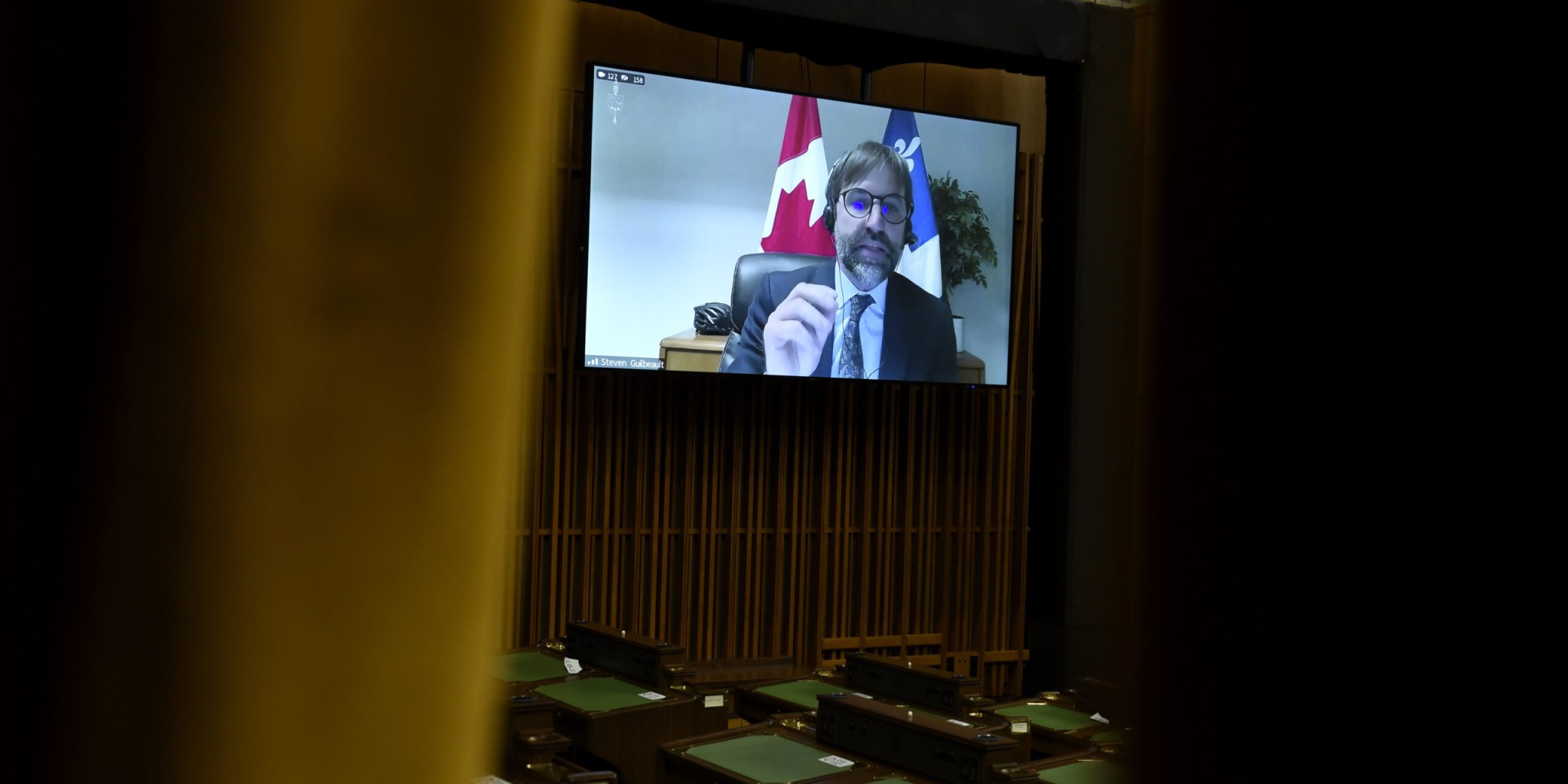There’s good news and bad news when it comes to polling on the government’s Bill C-10, which would require online services to promote the creation of Canadian content.
The bad news for the government is that most of the people who have heard of the bill disapprove of it.
The good news, then, is that barely anyone is aware of the controversial bill now winding through Parliament.
Fewer than three in 10 Canadians have even heard of the bill and that number rises to four in 10 among Conservative Party supporters, according to a poll by Public Square and Maru/Blue of 1,508 Canadians on the weekend of April 30, 2021.
A whopping 72 per cent of Canadians are either vaguely aware of the bill or have no knowledge of it at all. Forty percent of Canadians fall into the latter category, having never heard of the bill.
Of those Canadians who are aware of the bill, 11 percent are very supportive of it and 20 percent are somewhat supportive. Fifteen percent are somewhat unsupportive of Bill C-10 and 38 percent are very unsupportive. Ten percent are unsure.
On Monday, MPs on the heritage committee voted to send the bill to the justice minister for a second charter review amid concern about its effect on free speech. And a series of confusing statements in interviews by Heritage Minister Steven Guilbeault has added to the growing discontent with the bill.
On the weekend, Guilbeault said the CRTC may regulate YouTube accounts with a large following for CanCon requirements, before backtracking the following day. Recent changes to the bill removed an exemption for social media accounts, causing a new round of backlash and fear that the government would be cracking down on the internet activity of individual Canadians.
“It will ensure all Canadians communicating on the internet will do so under the guise of the state,” said Peter Menzies, a former vice-chair of the Canadian Radio-television and Telecommunications, at a panel discussion about Bill C-10 hosted by the Macdonald-Laurier Institute on Tuesday.
“There is no crisis in the Canadian cultural industry and the government doesn’t seem to understand what it is doing,” said Menzies.
Menzies dryly noted that the government is trying to put the internet under the auspices of the CRTC, emphasizing the words “television” and radio” in the name, and joked that “they are referring to this as modernization.”
Other panelists worried about capricious enforcement under the proposed new regime. Radio host Jamil Jivani urged left-leaning people to consider that one day a government they don’t like — maybe even someone like former U.S. President Donald Trump — could be holding these powers.
“There’s a lot of reasons to hold big tech accountable,” said Jivani. “And if you want to hold these companies accountable, there are much better ideas than what the Trudeau Liberals have put forward.”
Jivani said that given the lack of any meaningful ideas from the government to crack down on big tech, he could only conclude that Bill C-10 is a powergrab.
With some interpretations of the bill suggesting the algorithms that run sites like Twitter and YouTube would have to be quietly tweaked for compliance, it could lead to “shadowbans” of popular and controversial commentators, said Jen Gerson, an Albertan journalist and editor at The Line.
“If you’re an average Canadian looking on YouTube, these really popular commentators would just never show up for you. That’s where we’re getting into a dangerous space where the regulator is putting its thumb on what people can access,” said Gerson.
The removal of the social media exemption has kicked off a debate on free expression and, on that issue, Canadians overwhelmingly support free speech.
Asked to choose between free expression for individuals and promoting Canadian content on social media platforms, 73 percent of Canadians choose free expression.
The polling questionnaire was designed by Public Square Research in partnership with Maru/Blue. The research involved an online survey of 1,508 Canadians from the Maru Voice panel and the survey was fielded on the weekend of April 30, 2021.
Recommended for You

The Notebook by Theo Argitis: Trump halts trade talks, Carney’s trade-offs and John McCallum’s legacy

The Weekly Wrap: The Liberals must abandon their internet regulation agenda

‘A direct attack’: The Roundtable on Trump’s surprise trade announcement and Canada’s immigration debacle

Heather Exner-Pirot: No, we’re not done building pipelines in Canada



